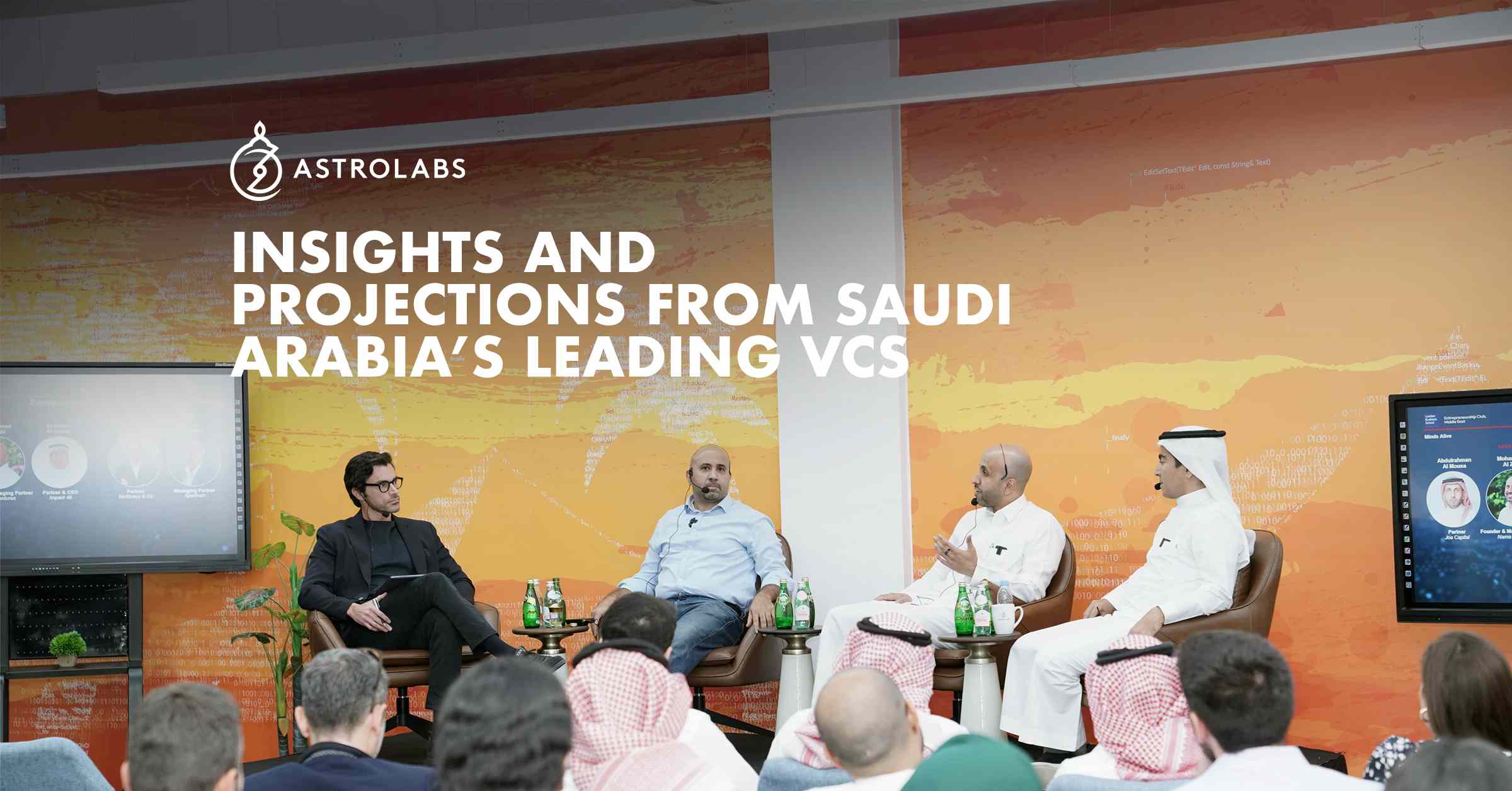In the first half of 2023, Saudi Arabia garnered the VC ecosystem’s attention and ranked on top of the charts for startup funding, a testament to the enormous potential the Kingdom holds for investors and entrepreneurs alike.
In a recent interactive fireside chat that we hosted in collaboration with the London Business School’s MENA Entrepreneurship Club, we were able to take a deep dive into the mindset of fund managers. “Minds Alive – Entrepreneurial Ecosystem – What VCs Look for in a Startup” featured prominent venture capitalists from Saudi Arabia and the region, who shared valuable insights into the factors that are driving this unprecedented growth.
Abdulrahman Al Mousa, Partner at Joa Capital, Abdulaziz Al Omran, Founder and CEO of Impact46, and Mohammed Al Zubi, Founding and Managing Partner at Nama Ventures, revealed what VCs generally look for when they decide to back a startup, especially in the current shifting innovation landscape. VCs today share a deep sense of optimism about the Saudi entrepreneurial ecosystem, and a keen commitment to supporting its evolution.
Agents of Change
VCs play an important role as change agents in any entrepreneurial ecosystem, as evidenced by Al Mousa’s experience. VCs are inherently risk-takers, and they thrive in environments that encourage innovation and challenge the status quo. Al Mousa stressed the importance of nurturing startup founders, who he referred to as “change agents” themselves. VCs see themselves as enablers of this change, facilitating the growth and development of businesses that can reshape industries.
Changing a country or region’s entire digital and entrepreneurial ecosystem requires efforts on all fronts. One of the driving forces behind the Saudi startup ecosystem’s success has been the unwavering support from the government. Initiatives, planning strategies, and government subsidies have provided a solid foundation for entrepreneurs to build upon. Al Zubi, a Silicon Valley veteran who moved back to MENA in order to create real impact in a promising ecosystem, highlighted the crucial role played by on-the-ground enablers like AstroLabs and similar entities with inspired, exhaustive programs that empower founders and their startups. This support is instrumental in fostering a dynamic entrepreneurial environment anywhere in the world, as a well-connected founder in their early phase is heavily reliant on their network and reputation.
Investment Strategies for Ever-Evolving Industries
Al Omran of Impact46 discussed how the Saudi entrepreneurial landscape has evolved over time. Previously dominated by fintech and on-demand services, the industry focus has shifted towards Software-as-a-Service (SaaS). This shift has led to changes in the type of founders emerging in the market. Impact46 made a strategic move by investing in the cybersecurity space, an uncommon choice in Saudi Arabia at the time. The founder’s background in the National Cybersecurity Authority demonstrated the importance of expertise in the industry, but it also exposed the drive of this new generation of founders to bring disruptive ideas to light.
On the flipside, for aspiring venture capitalists, the path to becoming a fund manager is marked by building trust with investors, and identifying “champion” startups. As Al Zubi explained, it primarily involves having enough committed investors to form a fund. The emergence of a new wave of fund managers receiving substantial support underscores the growing interest in investing in the Saudi entrepreneurial ecosystem.
Investment decisions should be driven by a well-defined investment thesis. Al Zubi highlighted how Nama Ventures believes in specialization and focuses on founders with complementary skill sets, a sentiment echoed by the other panelists. In the early stages, velocity is essential, requiring investors who are willing to take calculated risks and make swift decisions. Al Zubi also stressed the importance of being selective in finding these champions, and fervently supporting them over the long haul.
Identity and Communication
Saudi investors are keen on startups that resonate with the Saudi public, culture, and identity, even when investing in international startups. According to Al Zubi, the product must hold significance for Saudi Arabians. Believing in the strength of a structured team, Saudi investors prefer having a Saudi seller on board, as exemplified by the success of businesses like Careem and Floward in the region firstly, and beyond. These startups were clever enough to tap into cultural particularities, such as Careem’s scheduling options and Floward’s emotional offering, which accommodate the Saudi lifestyle of organized transport and heartfelt gift-giving, respectively.
Al Omran makes mention of an often overlooked criterion for selecting promising founders: defensibility. A startup’s defensibility, in essence, is ensuring that the business can maintain its competitive edge and its original vision, in contrast to short-lived startups that change management periodically. He stressed the significance of assessing the entrepreneur’s character, looking for individuals who can simplify complex problems and communicate effectively without resorting to jargon or complaints.
VCs value exceptional storytelling and execution abilities in startup founders. Successful entrepreneurs are not only visionaries but also have the ability to execute their ideas effectively, bridging the gap between strategy and action.
Promising Prospects for a Dynamic Ecosystem
The Saudi entrepreneurial ecosystem has set its tracks to leap into the next phase of growth, with new emerging industries and adaptive strategies, attracting the attention and investments of venture capitalists. This “third entrepreneurial revolution” in the Kingdom has brought forth a new set of challenges and opportunities. The startup landscape has shifted, both regionally and globally, from a focus on growth to a more balanced approach that considers profitability. VCs in Saudi Arabia are attuned to this shift, understanding the importance of converting funding into sustainable growth.
The insights we gained from the panel discussion underscore the positive sentiment among VCs regarding the Saudi opportunity. With government support, evolving industries, and an unwavering commitment to nurturing startups, Saudi Arabia has become a beacon for entrepreneurs, investors, and the fund managers that bring them together. As the ecosystem continues to flourish, VCs stand ready to be the catalysts for change, driving innovation, and reshaping industries in the Kingdom and beyond.

